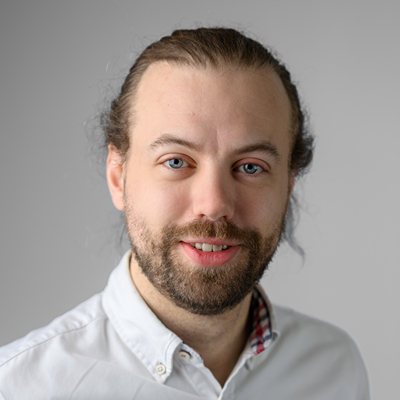In June, STAI CDT PhD student, Richard Willis, will start an exciting new role as a postdoctoral researcher on a highly competitive UK AI Security Institute funded project.
Richard will be working on the project, ‘Evaluating the Cooperative Behaviour of Systems of Generative Agents’, under project lead, Dr Yali Du. This project was one of 20 projects awarded funding as part of the Systemic AI Safety Grants Programme, first announced at the Seoul AI Summit. The aim of the Systemic AI Safety Grants Programme is to increase societal resilience to AI-related risks so its benefits can be fully realised.
We caught up with Richard to hear more about his upcoming Postdoc project, and his reflections on his PhD experience:
Congratulations on your exciting new Postdoc role. Please could you tell us more about the project and what you’ll be working on?
My upcoming postdoc project explores the following question: how will AI assistants behave when acting on our behalf in situations involving social trade-offs? The world is seeing an increase in the number of products built using language models such as Chat-GPT. As AI assistants become more integrated into our daily lives, they’ll increasingly make decisions for us that have both individual and societal implications.
Consider this scenario: you ask your AI assistant to book a doctor’s appointment. Should it secure the earliest available slot, or should it leave that for someone who might be more urgently ill, and book you one further away? This represents a classic social dilemma – a conflict between individual benefit (being seen quickly) and collective welfare (ensuring those most in need receive priority care). I’ll investigate how these AI systems navigate such dilemmas.
Of particular concern are competitive market pressures that might incentivise developers to create assistants that prioritize their users’ interests above all else, potentially leading to harmful societal outcomes. A key deliverable from this project will be an evaluation suite that helps AI developers assess how their models handle social dilemmas, contributing to improved systemic safety as these technologies become more prevalent in our lives.
How do you feel about this next step in your career?
The transition from PhD student to postdoctoral researcher marks a new step in my research journey. While I’ve greatly valued my doctoral experience, particularly the intellectual freedom to explore diverse topics, I’m enthusiastic about working on a project with clearer pathways to real-world impact. My PhD research leaned more theoretical, which sometimes felt removed from practical applications. This postdoc presents an opportunity to contribute to an emerging field with significant societal implications.
The STAI CDT program has fostered valuable social connections and friendships with colleagues, but my work to date has been individual. Looking ahead to this postdoc, I’m looking to foster more collaborative relationships. Having developed confidence in my research capabilities during my doctoral studies, I feel ready to engage more actively with the broader research community and seek out meaningful partnerships.
